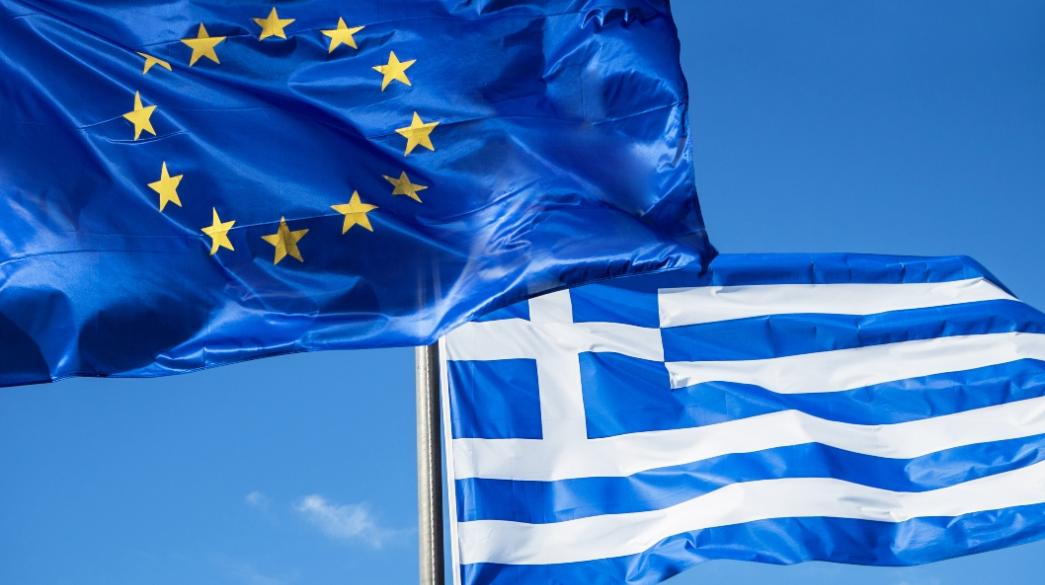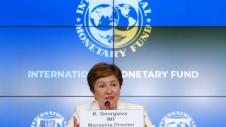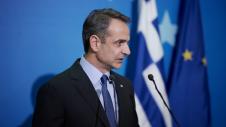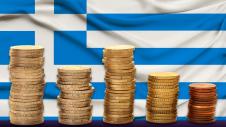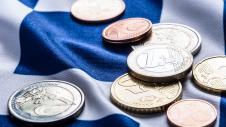The serious risks facing the Greek economy due to the coronavirus pandemic, as well as the factors that distinguish the current crisis from that of 2009 and allow for moderate optimism, were among the topics discussed by leading business people in an online public debate, Idea Circle, organized by former deputy Prime Minister and Finance Minister Evangelos Venizelos, regarding the pandemic, the effects on the economy and Greece's prospects.
Among those taking part were Fokion Karavias, CEO of Eurobank, Evangelos Mytilineos, President and CEO of MYTILINEOS, Giannis Retsos, President of SETE, CEO of Electra Hotels & Resorts.
G. Retsos: The first priority is securing the viability of businesses
SETE President Giannis Retsos referred to the positive impact from the government's efforts to manage the health crisis, which he said changes the country's image abroad, creating a positive brand that can be capitalized on in the near future. Referring to the tourism sector, he stressed that in 2019 the industry's direct contribution to the economy was 25 billion euros, reaching 13 percent of GDP. "With multipliers, we are talking about a 30 percent contribution to the country's GDP," he said, noting that in the July-September quarter, the number of employees in the tourism industry reached 700,000, or 17 percent of all employees.
Referring to the current situation, he stressed that a series of measures have been implemented for businesses and employees, allowing them to work in safe mode so that we can plan a restart and then we will need specific protocols to get the economy moving again, as it will not continue from the point where it stopped. The next day, Retsos said, we should pay attention to securing the viability of businesses, giving them a liquidity injection that will reach 1.5 to 2 billion euros so that the tourism economy can restart, along with other aid measures, such as a VAT reduction and a coordinated promotion campaign for the country abroad. "However, we will also need to improvise," he said, "as our central markets will be lost this year (England, Germany, France, Italy and the United States)." Thus, alternative markets should be sought after, such as those that have handled the health crisis well (eg Israel, Cyprus or the Balkans).
In comparison with the period after the September 11 attacks, he stressed that despite the fear and uncertainty it created for travel and despite the 2008 crisis, the last 15 years have been the best for tourism. "There will be changes, people will not want to travel. Airlines must be supported. The states must also support big tour operators ", he said, adding Greece also has about 10-11 million tourists that visit the country by road.
"Tourism is psychology. The faster it collapses, the faster it recovers. It will recover when people are convinced that it is safer to travel," he said, stressing that it would take about three to five years to recover what we are currently losing. "It will be a difficult and critical year. If we have our eyes on 2021, provided that the pandemic ends, then we can be optimistic, "he said.
F. Karavias: The crisis should not bring a new wave of bad loans
"There is no doubt that the pandemic crisis has different characteristics than in 2008. It has more in common with the 2001 crisis after the terrorist attacks in New York," said Fokion Karavias, CEO of Eurobank. "We have never seen such a general lockdown in world wars," he said, stressing that the big bet now is to prevent the crisis from becoming a new debt crisis.
Listing off the reasons why the Greek economy is vulnerable, he stressed that now we are coming out of a great crisis and that we had a growth that is now being pushed back, while we have not yet managed to heal the wounds in production and the economy itself has structural problems.
"Not all points are negative, however," he said, stressing Greece's positive impression abroad of its handling of the crisis and the fact that we do not now have any immediate need to refinance debt. "If the country wanted to, it could draw liquidity from the markets," he said, stressing that the tools used by the ECB should be used as a reminder that the crisis is not Greek, it is global and European.
The banking system is more protected than it was in 2008, he said, adding that banks have invested 1 billion euros in information and digital systems over the past five years to adapt to the new data created by the digital revolution, to help cope with difficult situations.
"There is liquidity in the banking system to restart the economy with the tools of the ECB, which has moved very fast," he said, noting that "in 2010 it took Draghi four years to say 'whatever it takes'." "Now, this happened in the first week from the start of the crisis. Europe is moving faster. "
Ev. Mytilineos: Money is being printed and it will be seen in the economy
"We are in uncharted waters," said Evangelos Mytilineos, President and CEO of MYTILINEOS, beginning his speech. "Demand fell to unheard-of levels in such a short period of time, not seen even in times of war. Realistically speaking, the economic problem stemming from declining demand and the suspension of production units and services, which is unprecedented, may lead to a GDP drop of more than 20 percent in the second quarter," he predicted.
"In industry, we see big companies suspending operations and smaller companies being driven to shut down, as they can't sell their products. Businesses are struggling for survival. And I'm talking about 80 percent of businesses of all sizes," he said, noting that after the issue of employee protection, the next thing we need to look at is corporate liquidity. "The third point is to use this time to reorganize businesses - to do what we couldn't do in other periods," he said, stressing that positive news could also be in store for us.
"Money is being printed that will start to appear in the economy and businesses. Fiscal deficits will be a problem, but will now also affect other countries, like Italy," he said.
Referring to the issue of the oil crisis, he said that it is the most serious issue after the health crisis, adding that for countries like Greece, which import 100 percent of its needs, it is important that prices remain low.
Christina Zafeirouli


